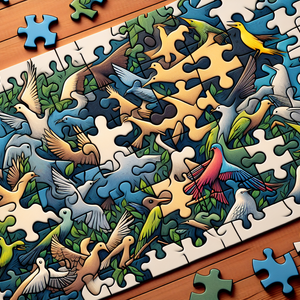The Cultural Impact of La Liga on Spanish Identity

Football in Spain is deeply connected to regional identities, with La Liga showcasing some of the most passionate rivalries that characterize the sport. The clash between FC Barcelona and Real Madrid, known as El Clásico, transcends mere athletic competition; it serves as a cultural battleground that encapsulates the historical tensions between Catalonia and Castile. For many Catalans, supporting FC Barcelona is more than just a hobby; it is an assertion of regional pride and a form of resistance against the centralization of power in Madrid. The club’s motto, "Més que un club" (More than a club), embodies this sentiment, positioning the team as an emblem of Catalan nationalism. Similarly, clubs like Athletic Bilbao represent the Basque identity, emphasizing a commitment to local culture by fielding teams composed exclusively of Basque players. This dedication to preserving regional heritage fosters a sense of belonging and community among fans, transcending the sport itself. As La Liga continues to gain international popularity, it serves as a reminder of Spain's diverse cultural landscape, with each club encapsulating a unique story and identity that resonates with its supporters.
Football as a Reflection of Social Change
Throughout Spain's tumultuous history, football has played a pivotal role in reflecting and shaping social change. During the Franco regime, for instance, football became a means of expression for those asserting their regional identities amid oppression. The fervor surrounding matches allowed fans to showcase their passion while subtly challenging the status quo. The 1982 FIFA World Cup, hosted by Spain, marked a significant turning point as the nation began to embrace democracy. La Liga played a crucial role in fostering national pride and unity during this transformative period. In recent years, La Liga has also actively responded to contemporary social issues, such as racism and gender equality. Initiatives like "La Liga against racism" have sought to combat discriminatory behavior in stadiums, signaling a shift towards inclusivity and social responsibility within the sport. Furthermore, the rise of women's football, exemplified by the establishment of the Primera División Femenina, reflects broader societal changes as more women engage with the sport both as players and fans. This evolution highlights how La Liga has become a platform for advocating social progress and inclusivity, manifesting the changes in Spanish society and its attitudes toward diversity.
The Globalization of La Liga's Cultural Influence
As La Liga's global reach expands, it brings with it a blend of cultures that further enrich Spanish identity. The influx of international players and coaches has introduced new styles of play and philosophies, creating a dynamic environment that challenges traditional norms. Clubs like Real Madrid and Barcelona have evolved into global brands, attracting millions of fans worldwide and serving as ambassadors of Spanish culture. This globalization presents an opportunity to showcase the rich tapestry of Spanish identity while raising questions about the preservation of local traditions amid commercialism. Moreover, the league's ability to adapt to technological advancements and engage with younger audiences through social media and digital platforms has transformed the way fans interact with football. The integration of esports and virtual fan experiences positions La Liga as a forward-thinking league that embraces innovation while remaining rooted in its cultural heritage. This adaptability allows La Liga to maintain its relevance in an increasingly interconnected world, ensuring that it continues to be a significant part of Spanish cultural life.
La Liga is more than just a football league; it is a cultural cornerstone that reflects the complexities of Spanish identity. Through its regional rivalries, historical significance, and evolving social narratives, La Liga has been both shaped by and has shaped the cultural landscape of Spain. As the league continues to grow and adapt in the face of globalization and technological advancements, it remains a powerful medium for expressing the diverse identities that constitute Spain. In celebrating its past while embracing its future, La Liga stands as a testament to the enduring impact of football on culture and society, reminding us that the beautiful game is indeed a reflection of life itself.
Sports Marketing Manager
Sports marketing agencies, major football clubs (e.g., FC Barcelona, Real Madrid), La Liga's central marketing team
Core Responsibilities
Develop and execute marketing strategies to promote La Liga teams and events, targeting both local and international audiences.
Collaborate with clubs to enhance fan engagement through digital campaigns and social media initiatives.
Analyze market trends and fan demographics to tailor promotional efforts effectively.
Required Skills
Strong understanding of the sports industry, particularly football and its cultural significance.
Proficiency in digital marketing tools and analytics.
Excellent communication and interpersonal skills for building relationships with stakeholders.
Cultural Liaison Officer
Football clubs, non-profit organizations focused on cultural integration, sports federations
Core Responsibilities
Facilitate communication and collaboration between football clubs and local communities, enhancing cultural representation in the sport.
Organize community events and programs that celebrate regional identities associated with La Liga clubs.
Implement initiatives that promote inclusivity and diversity within the sport.
Required Skills
Strong knowledge of Spanish culture and regional identities, particularly in relation to football.
Experience in community outreach and engagement.
Ability to work with diverse groups and manage cultural sensitivities.
Sports Sociologist
Universities, research institutions, think tanks focused on sports and cultural studies
Core Responsibilities
Conduct research on the social implications of football in Spain, including its impact on national identity and regional pride.
Analyze how La Liga reflects societal changes, such as gender equality and anti-racism efforts in sports.
Publish findings in academic journals and present at conferences to influence policy and practice in sports sociology.
Required Skills
Advanced degree in sociology, cultural studies, or a related field, with a focus on sports.
Strong analytical and research skills, including statistical methods.
Excellent written and verbal communication skills for presenting complex ideas clearly.
Event Coordinator for Sports Events
Event management companies, football clubs, La Liga's event management team
Core Responsibilities
Plan and oversee logistics for La Liga matches and community engagement events, ensuring seamless execution.
Collaborate with local authorities, vendors, and clubs to enhance the matchday experience for fans.
Manage budgets and timelines, ensuring events are delivered within scope and financial parameters.
Required Skills
Strong organizational and project management skills, with experience in event planning.
Knowledge of sports regulations and safety protocols.
Ability to work under pressure and adapt to last-minute changes.
Digital Content Creator for Football
Media companies, sports networks, individual football clubs
Core Responsibilities
Produce engaging content for social media platforms, focusing on La Liga teams, players, and their cultural significance.
Develop multimedia projects, including videos and articles, that highlight the connection between football and Spanish identity.
Collaborate with marketing teams to align content strategies with promotional campaigns.
Required Skills
Proficiency in content creation tools and social media platforms.
Strong storytelling skills, particularly in sports and cultural contexts.
Familiarity with video editing software and graphic design.


